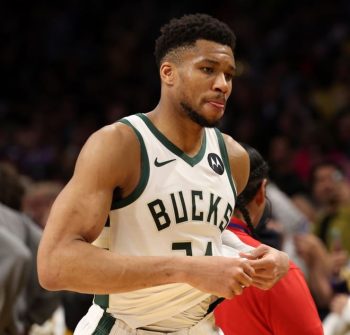NBA
NBA And Players Reach Agreement On New CBA

The NBA and the National Basketball Players Association announced that they have reached an agreement on terms for a new labor agreement.
The deal is not official or final but does represent a huge step forward for the NBA, which has seen two lockouts over the course of the last two labor negotiations.
While both sides are beginning to share the specific details with their respective groups, there are a few things that have leaked out about the new deal and what it is likely to include. It is believed the new labor deal will include:
A “designated veteran” provision that will allow teams to add up to five guaranteed years onto an existing deal, making contract extensions more appealing. This is especially meaningful for players such as Indiana’s Paul George, Sacramento’s DeMarcus Cousins, and Oklahoma City’s Russell Westbrook, all of whom could add five more years to their remaining contract year this July.
This provision will have some qualifying factors, such as All-NBA teams, All-Star nods and similar postseason accolades much like the existing “Rose Rule,” and it is believed to include players heading into restricted free agency as well.
All of the slotted values currently fixed in the CBA will be increased by as much as 50 percent. This will include the Rookie Scale contract system and the various salary cap exceptions such as the Mid-Level, the Bi-Annual, and the Tax Payer exception.
A new “two-way” contract will be introduced that will effectively allow NBA teams to carry a 16th and 17th roster spot. While teams will still only be allowed to have 13 active players on game night, it will allow teams to retain rights to two players they will likely shuttle back and forth from the D-League. These new deals will pay players one rate for time spent in the D-League while allowing them to earn an NBA rate if they are brought to the main NBA team.
The existing “Over-36” Rule which limits the length of a contract if a player turns 36 during that deal will be increased to an “Over-38” rule, which is meaningful for Players Association leaders Chris Paul, LeBron James and Carmelo Anthony – each of whom are looking at new contracts soon.
The core revenue structure and salary cap system will remain basically the same, with the players sharing in a “band” of revenue between 49 and 51 percent of Basketball Related Income. With no major economic changes, it’s unlikely the new deal will include an amnesty clause.
While both sides have agreed to the terms of the deal, there is still the specific ratification process that both the players and the owners have to go through. In order to allow this process to play out, both sides have agreed to push back their opt-out date into mid-January, with the expectations that a final deal will be reached in early January and begin this July.













